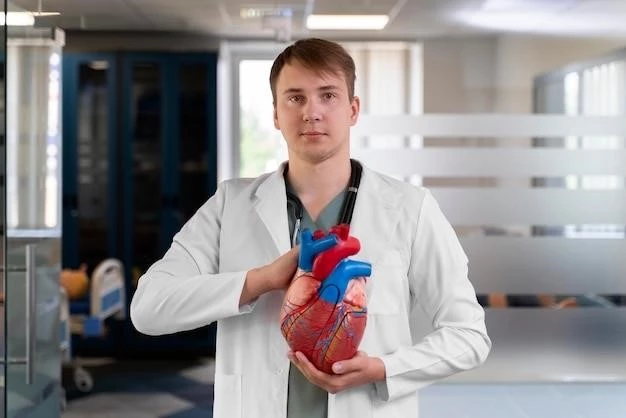Overview of Cardiomelic Syndrome Stratton Koehler Type
Cardiomelic Syndrome Stratton Koehler Type is a rare genetic disorder characterized by limb and heart abnormalities․ It is named after the researchers who first identified it․ This syndrome poses significant challenges to affected individuals and requires specialized care and management․
Definition and Description of Cardiomelic Syndrome Stratton Koehler Type
Cardiomelic Syndrome Stratton Koehler Type is a complex condition involving congenital limb malformations combined with various cardiac defects․ The syndrome’s name reflects the specific features and severity of limb and heart anomalies observed in affected individuals․ Understanding the distinct characteristics of this syndrome is crucial for accurate diagnosis and appropriate management strategies․
Causes and Risk Factors of Cardiomelic Syndrome
The etiology of Cardiomelic Syndrome Stratton Koehler Type is predominantly genetic, involving mutations that impact limb and heart development․ Additionally, environmental factors may contribute to the manifestation of this syndrome․ Understanding these causes and risk factors is essential for effective prevention and management․
Genetic Factors Contributing to Cardiomelic Syndrome
Cardiomelic Syndrome Stratton Koehler Type is primarily caused by genetic mutations affecting limb and heart development․ These mutations can disrupt key pathways involved in embryonic limb bud and cardiac organogenesis, leading to the characteristic malformations associated with this syndrome․ Understanding the genetic underpinnings is crucial for accurate diagnosis and potential targeted interventions․
Environmental and Other Risk Factors for Developing Cardiomelic Syndrome
While genetic factors play a significant role in Cardiomelic Syndrome Stratton Koehler Type, certain environmental influences may also impact the development of this condition․ Exposure to teratogenic agents during critical stages of fetal development can contribute to the formation of limb and heart abnormalities characteristic of this syndrome․ Understanding these environmental risk factors is essential for preventive measures and comprehensive management strategies․
Symptoms and Diagnosis of Cardiomelic Syndrome
The signs of Cardiomelic Syndrome Stratton Koehler Type include limb anomalies and heart defects, which can be identified through thorough clinical evaluation and diagnostic tests․ Early and accurate diagnosis is vital for initiating appropriate treatment and management strategies to improve outcomes for individuals affected by this complex syndrome․
Common Symptoms Associated with Cardiomelic Syndrome
Cardiomelic Syndrome Stratton Koehler Type presents with characteristic features such as limb shortening, malformations, and varying cardiac anomalies․ Individuals may exhibit underdeveloped limbs along with structural heart defects, impacting overall function and mobility․ Recognizing these common symptoms is crucial for timely diagnosis and multidisciplinary management tailored to each patient’s specific needs․
Diagnostic Procedures and Tests for Identifying Cardiomelic Syndrome
Diagnosing Cardiomelic Syndrome Stratton Koehler Type typically involves a combination of imaging studies like ultrasound and MRI, genetic testing, and thorough clinical assessments․ These diagnostic approaches help clinicians evaluate limb and heart anomalies, confirm genetic abnormalities, and formulate individualized treatment plans․ Timely and precise diagnosis is essential for optimizing outcomes and providing tailored care for individuals with this complex syndrome․
Treatment Options for Cardiomelic Syndrome
Treatment for Cardiomelic Syndrome Stratton Koehler Type aims to address limb anomalies and heart defects through a multidisciplinary approach involving surgical interventions, rehabilitative therapies, and ongoing monitoring․ Individualized care plans are crucial to optimize outcomes and improve the quality of life for individuals living with this complex syndrome․
Medical Interventions for Managing Cardiomelic Syndrome
Medical management of Cardiomelic Syndrome Stratton Koehler Type may involve surgeries to correct limb deformities and cardiac anomalies․ Additionally, medications to manage heart conditions, physical therapy for mobility, and regular monitoring are crucial components of the treatment plan․ Coordination among a specialized healthcare team is essential to ensure comprehensive care tailored to the individual’s needs․
Therapeutic Approaches and Surgical Options for Cardiomelic Syndrome
The management of Cardiomelic Syndrome Stratton Koehler Type often involves a combination of therapeutic interventions, including physical and occupational therapy to optimize function and mobility․ Surgical procedures may be necessary to address limb abnormalities and congenital heart defects, improving quality of life and long-term outcomes for affected individuals․ A multidisciplinary care team collaborates to provide holistic and tailored treatment approaches․
Prognosis and Life Expectancy of Cardiomelic Syndrome
The prognosis and life expectancy of individuals with Cardiomelic Syndrome Stratton Koehler Type depend on the severity of limb and heart abnormalities, the timeliness of interventions, and the presence of associated complications․ Multidisciplinary care and ongoing monitoring play a crucial role in enhancing outcomes and improving the quality of life for those affected by this condition․
Long-Term Outlook for Individuals with Cardiomelic Syndrome
The long-term prospects for individuals with Cardiomelic Syndrome Stratton Koehler Type can vary based on treatment outcomes, ongoing care, and the presence of associated health issues․ Regular follow-ups, family support, and access to specialized services are essential for enhancing independence, quality of life, and overall well-being for individuals living with this rare genetic condition․
Factors Affecting the Life Expectancy of Individuals with Cardiomelic Syndrome
The life expectancy of individuals with Cardiomelic Syndrome Stratton Koehler Type is influenced by the severity of cardiac complications, the extent of limb abnormalities, access to specialized care, and the presence of any associated medical conditions․ Timely interventions, consistent follow-up, and a supportive environment are essential factors that can positively impact longevity and overall well-being for individuals affected by this complex syndrome․
Research Advances in Cardiomelic Syndrome
Ongoing scientific research is exploring novel treatment strategies and enhancing understanding of the underlying genetic mechanisms contributing to Cardiomelic Syndrome Stratton Koehler Type․ These advancements hold promise for improving diagnostic accuracy, therapeutic interventions, and ultimately the overall outcomes and quality of life for individuals affected by this complex condition․
Current Trends in Scientific Research on Cardiomelic Syndrome
Contemporary scientific investigations on Cardiomelic Syndrome Stratton Koehler Type focus on elucidating the genetic basis of limb and heart malformations, developing targeted therapies, and exploring personalized treatment approaches․ Enhanced collaboration among researchers, advancements in genetic technologies, and increased understanding of developmental pathways are driving current trends in the quest to improve outcomes and quality of life for individuals affected by this rare syndrome․
Innovations and Breakthroughs in Understanding and Treating Cardiomelic Syndrome
Recent innovations in research have led to a deeper understanding of the complex genetic and developmental mechanisms underlying Cardiomelic Syndrome Stratton Koehler Type․ Breakthroughs in personalized medicine, regenerative therapies, and interdisciplinary care models are transforming treatment strategies, aiming to enhance the quality of life and long-term outcomes for individuals affected by this rare and challenging condition․
Support and Resources for Individuals with Cardiomelic Syndrome
Accessing specialized care providers and support groups can provide invaluable guidance and emotional assistance to individuals and families navigating the challenges associated with Cardiomelic Syndrome Stratton Koehler Type․ Utilizing available resources and educational programs can enhance understanding and foster a supportive network for those affected by this rare genetic condition․

Impact of Cardiomelic Syndrome on Quality of Life
Cardiomelic Syndrome Stratton Koehler Type can significantly affect physical, emotional, and social well-being, posing challenges to daily functioning and overall quality of life․ Strategies focusing on holistic care, adaptive technologies, and psychological support play a vital role in enhancing the quality of life for individuals managing this complex genetic condition․
